AMD Ryzen 9 9950X3D: Performance Reviewed
Just a few months after the AMD Ryzen 7 9800X3D made its debut, the Ryzen 9 9950X3D arrives, bringing its 3D V-Cache technology to a 16-core, 32-thread gaming processor. This powerhouse is an absolute beast for gaming, easily keeping pace with high-end graphics cards like the Nvidia RTX 5090 or its successors. However, with a hefty $699 price tag and a 170W power budget, this chip is best suited for those building top-tier, high-cost gaming PCs. For the majority of users, the more cost-effective Ryzen 7 9800X3D remains the smarter choice.
Purchasing Guide
The AMD Ryzen 9 9950X3D will be available starting March 12, with a suggested retail price of $699. Keep in mind that the pricing of AMD processors can vary due to market demand.
AMD Ryzen 9 9950X3D – Photos
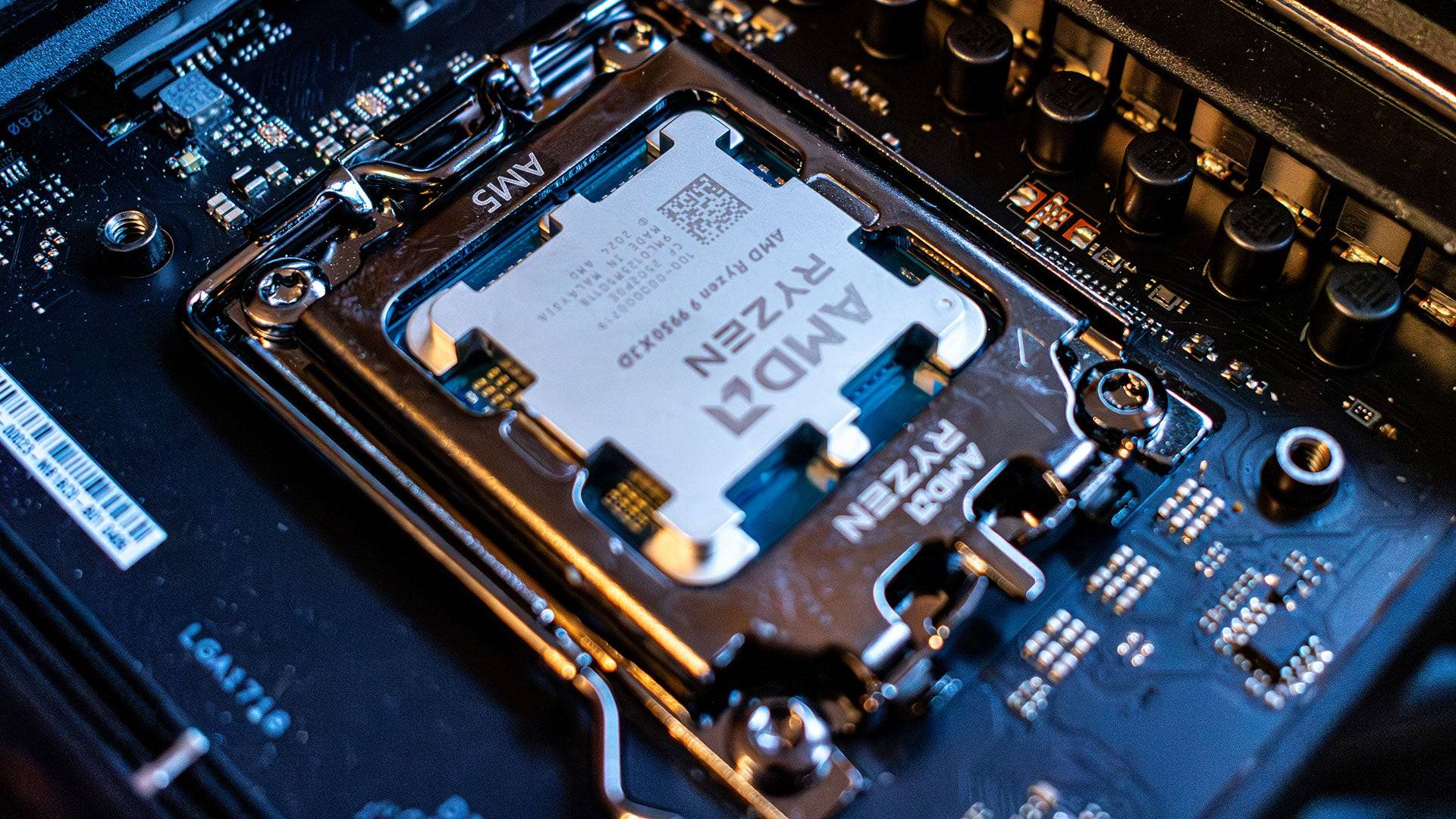
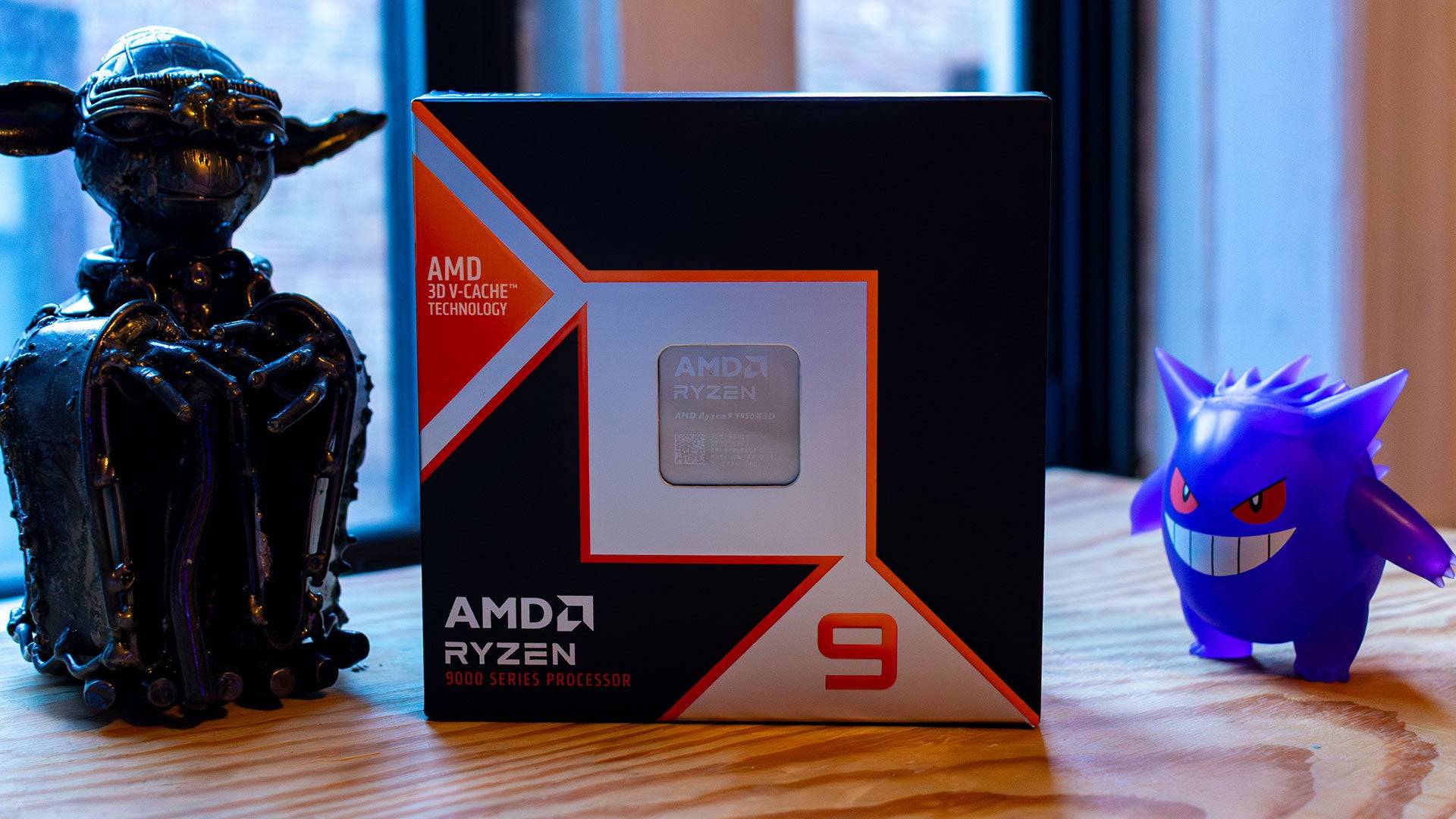 3 Images
3 Images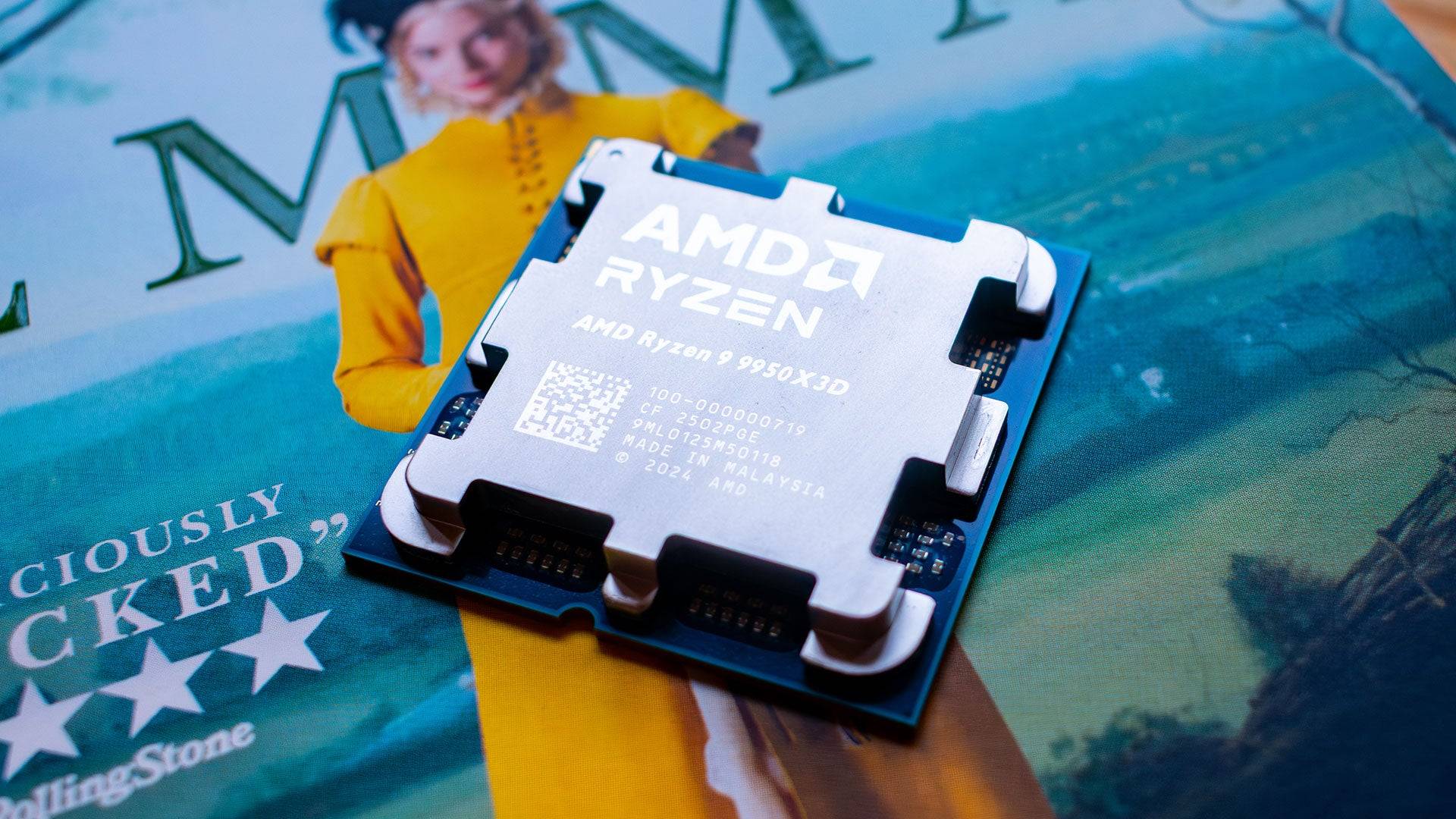
Specs and Features
The AMD Ryzen 9 9950X3D builds on the Zen 5 architecture of the regular 9950X, enhancing it with the 2nd-generation 3D V-Cache technology seen in the Ryzen 7 9800X3D. This combination ensures robust multi-core performance alongside superior gaming capabilities, thanks to an expanded cache.
A notable change from the previous Ryzen 9 7950X3D is the placement of the 3D V-Cache directly under the CPU cores, rather than above. This seemingly minor adjustment significantly improves thermal performance. With the Core Complex Die (CCD) positioned closer to the Integrated Heat Spreader (IHS), heat dissipation is more efficient. This allows the Ryzen 9 9950X3D to maintain higher performance levels over extended periods, as AMD's performance algorithms leverage this thermal headroom.
Beyond thermal benefits, the strategic placement of the cache reduces data travel distance, lowering latency. The 9950X3D boasts a total of 144MB of combined L2 and L3 cache, matching the last-generation Ryzen 9 7950X3D and surpassing non-X3D processors.
Both the AMD Ryzen 9 9950X and 9950X3D share a 170W TDP, although the original 9950X has a higher potential PPT. Testing showed both processors peaking at 200W, but the 9950X3D achieved a lower peak temperature of 79°C, despite using a different cooler.
F Fortunately, the 9950X3D is compatible with existing AM5 AMD motherboards, with AMD committing to support this socket until at least 2027, ensuring long-term platform viability.
AMD Ryzen 9 9950X3D – Benchmarks
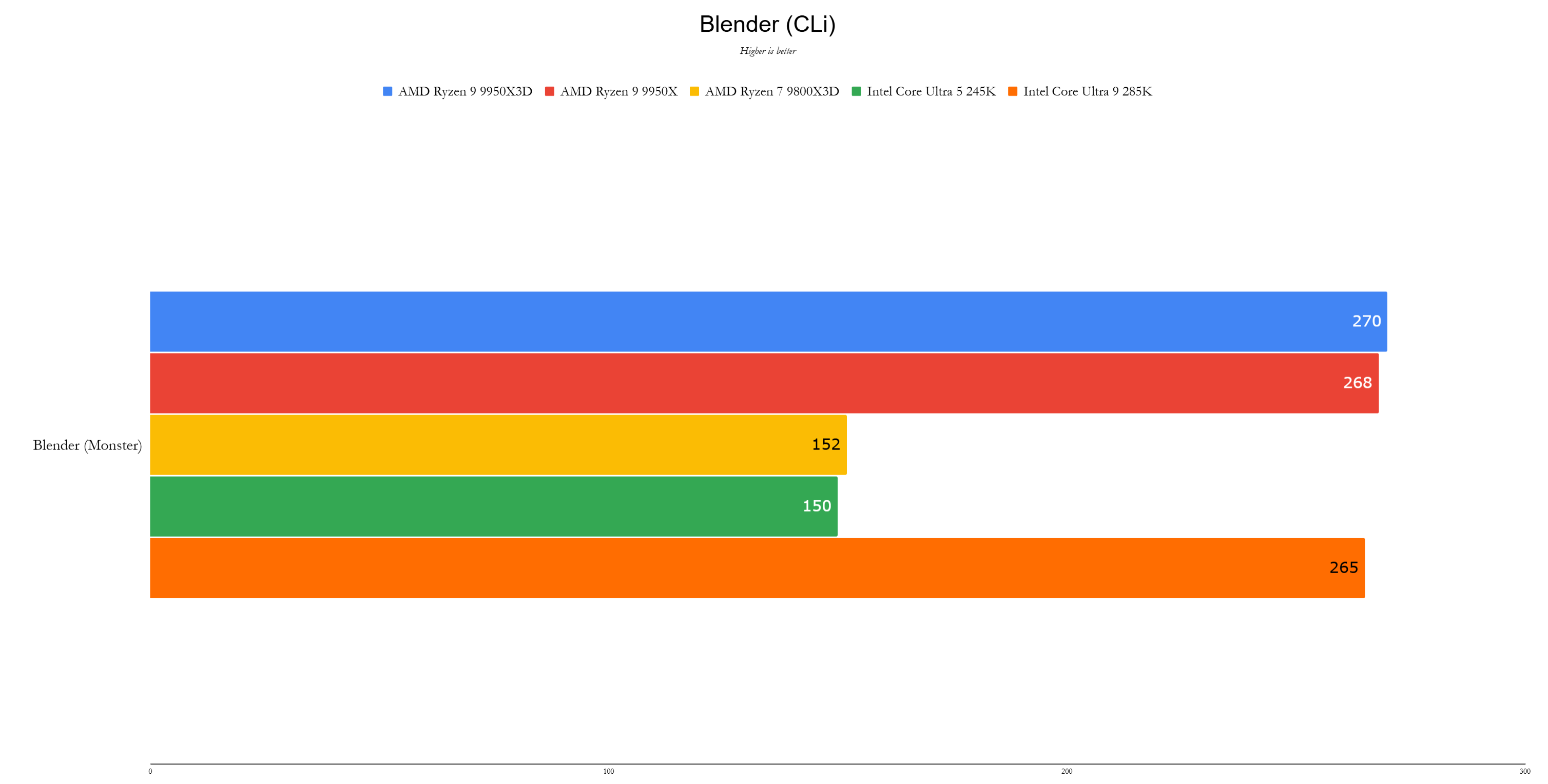
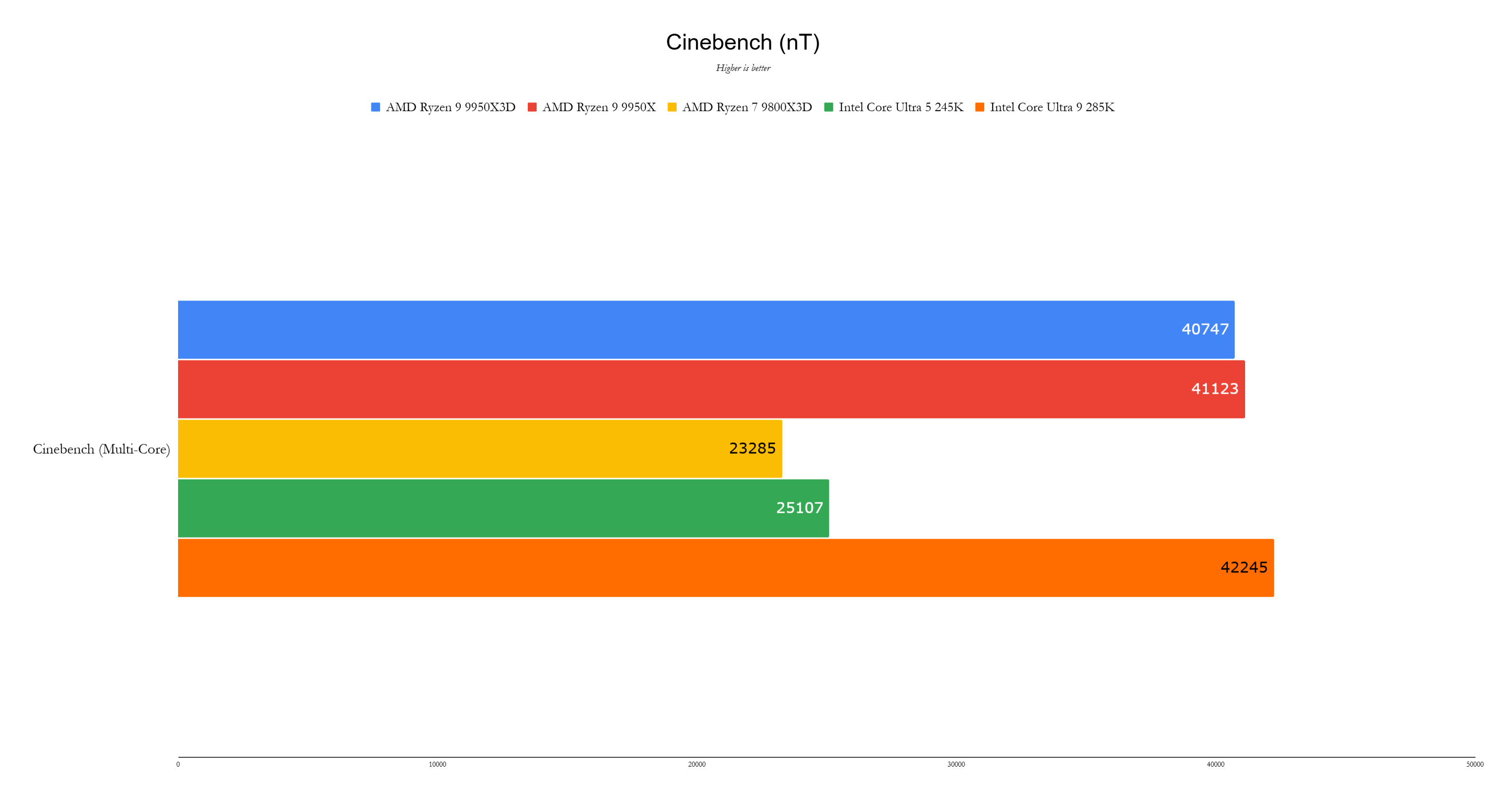 11 Images
11 Images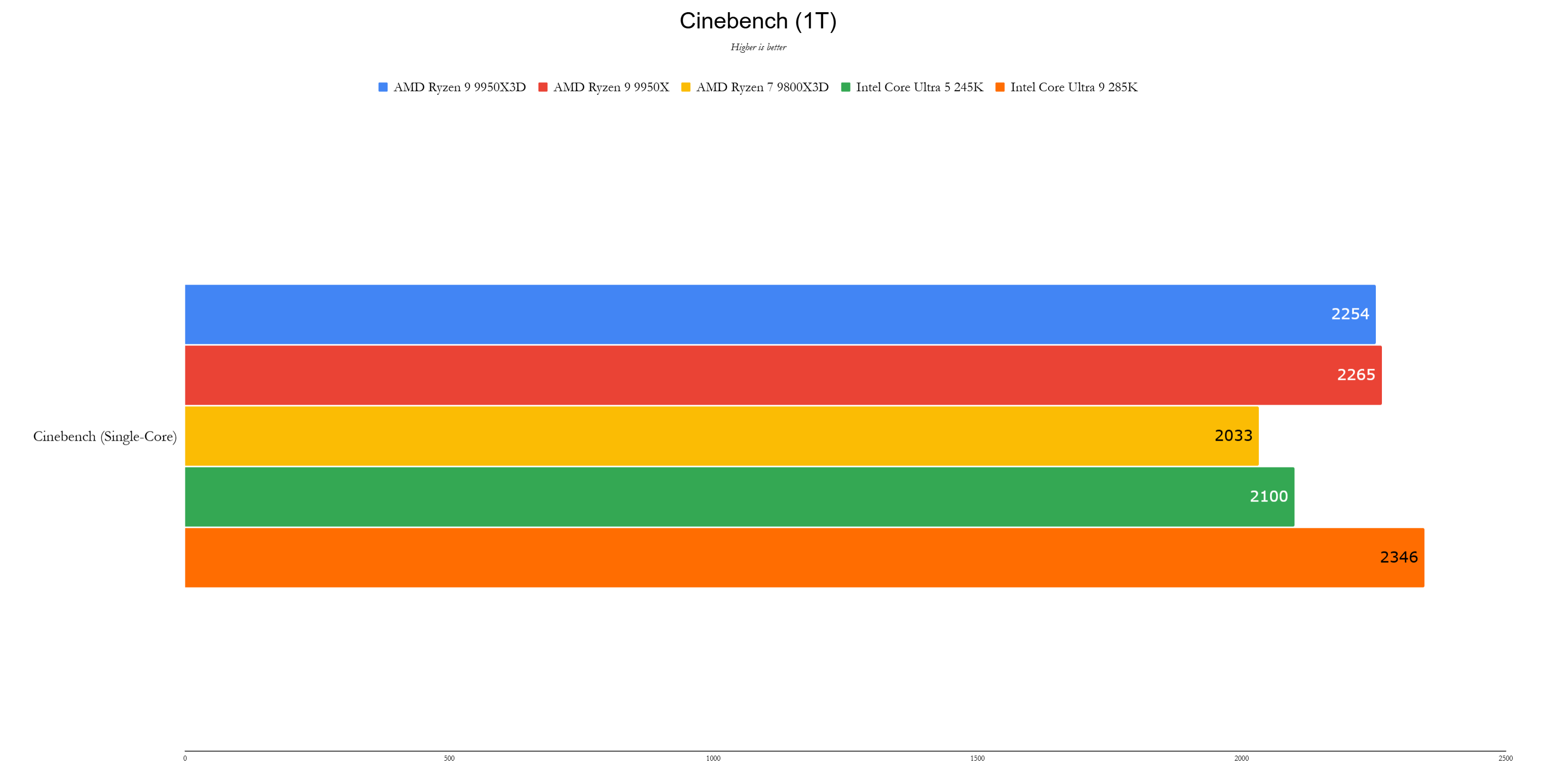
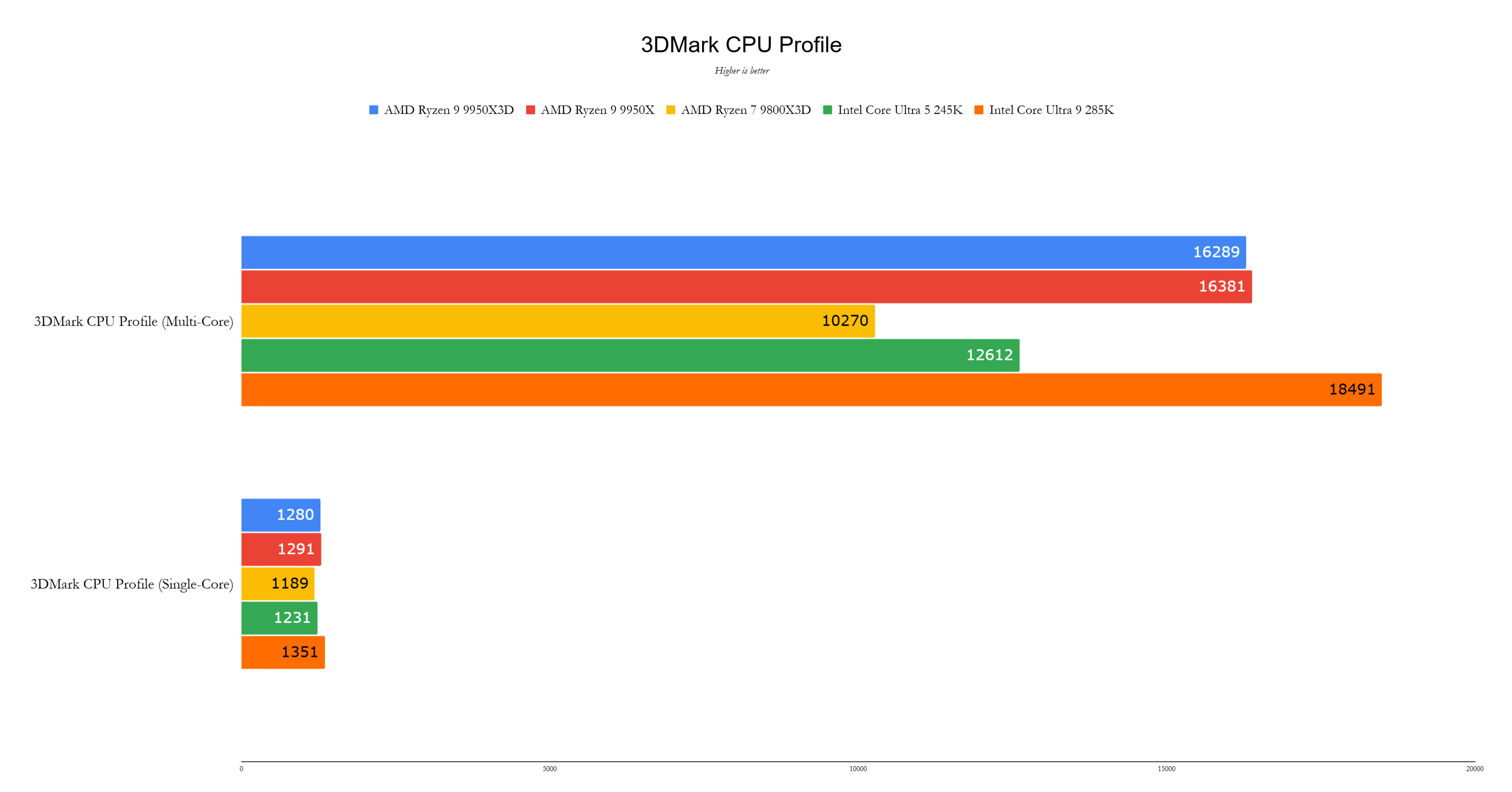
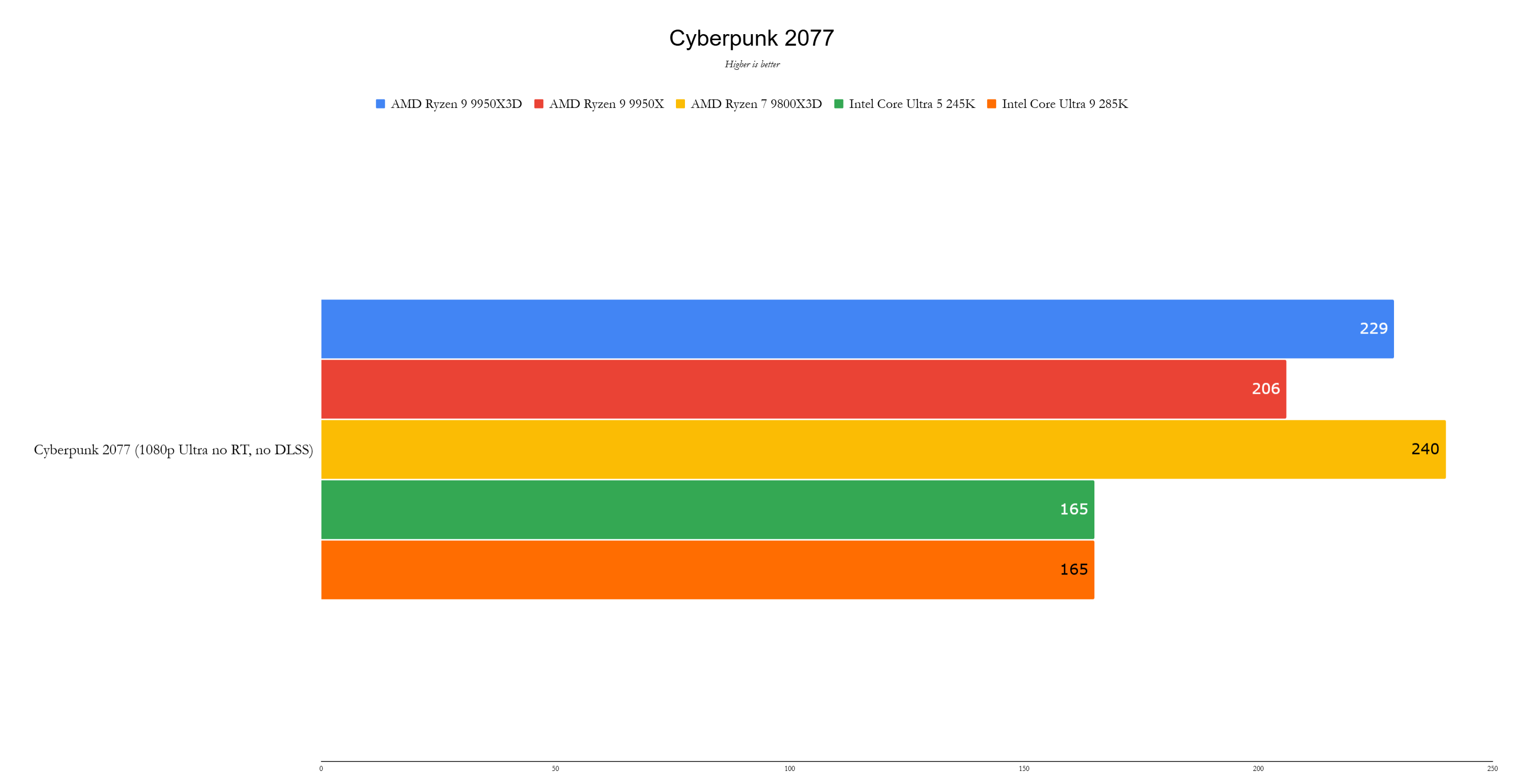
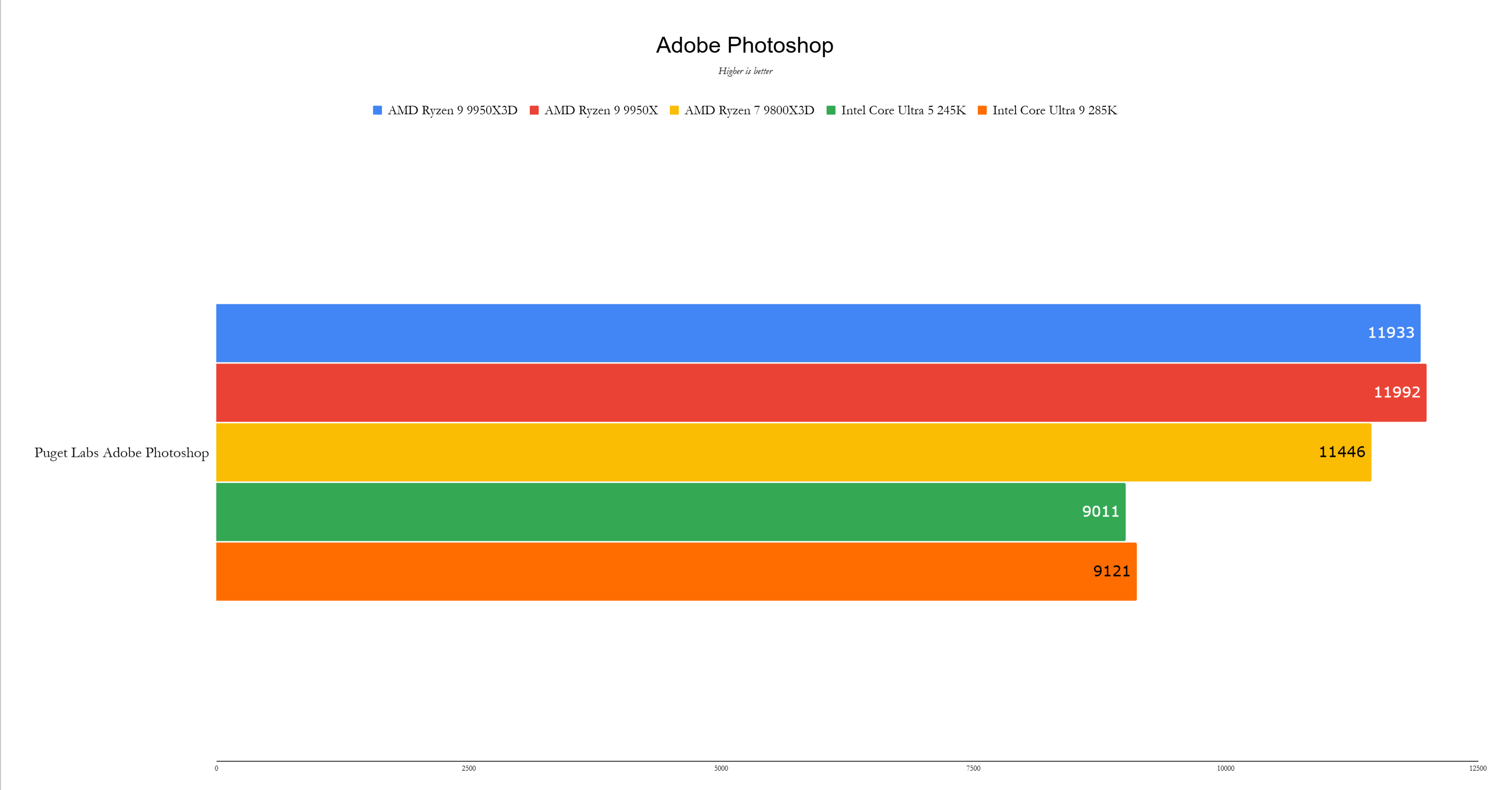
Performance
Before delving into the performance results, it's important to note that all CPUs were tested on identical hardware, with the exception of the Ryzen 9 9950X, which was tested on an Asus ROG Crosshair X670E Hero motherboard with a Corsair H170i 360mm AIO cooler. Although this hardware difference may affect performance, the impact is minimal as all tests were conducted at stock settings.
AMD Test Bench:
GPU: Nvidia GeForce RTX 4090
Motherboard: Asus ROG Crosshair X670E Hero; Asus ROG Crosshair X870E Hero (9800X3D)
RAM: 32GB G.Skill Trident Z5 Neo @ 6,000MHz
SSD: 1TB PNY CS3140 Gen4x4 NVMe SSD
CPU Cooler: Asus ROG Ryujin III 360 ARGB Extreme
The variation in hardware occurred due to a mounting screw issue with the Asus ROG Ryujin III 360mm cooler during the switch to the 9950X. Plans are in place to retest the processors and update this section if significant differences arise.
The AMD Ryzen 9 9950X3D, with its 16 cores, 32 threads, and an impressive 144MB of cache, delivers exceptional performance. In creative benchmarks where the 9800X3D struggled, the 9950X3D holds its own against the market's top chips.
Intel Test Bench:
GPU: Nvidia GeForce RTX 4090
Motherboard: Asus ROG Maximus Z890 Hero (200S); Asus Prime Z790-A (14th-Gen)
RAM: 32GB Corsair Vengeance DDR5 @ 6,000MHz
SSD: PNY CS3140 1TB Gen 4 x 4 NVMe SSD
CPU Cooler: Asus ROG Ryujin III 360 ARGB Extreme
The 9950X3D performs admirably in single-core workloads compared to the 9800X3D. In Cinebench 1T, it scores 2,254 points, a 10% improvement over the 9800X3D's 2,033 points. In the 3DMark CPU Profile test, the 9950X3D achieves 1,280 points, closely trailing the Intel Core Ultra 9 285K's 1,351 points.
In multi-threaded workloads, the Ryzen 9 9950X3D shines with a score of 40,747 points in Cinebench's multi-core test. While it slightly underperforms compared to the 9950X (41,123 points) and the Intel Core Ultra 9 285K (42,245 points), the trade-off is justified by its gaming performance boost.
In gaming benchmarks, the 9950X3D excels in Total War: Warhammer 3 at 1080p with Ultra settings, achieving 274 fps alongside the RTX 4090, outpacing the 9800X3D (254 fps) and the Core Ultra 9 285K (255 fps). However, in Cyberpunk 2077 at 1080p with the Ultra preset and ray tracing disabled, it manages 229 fps, slightly less than the 9800X3D's 240 fps but still significantly faster than the 165 fps of the competing Intel processor.
Overkill?
The AMD Ryzen 9 9950X3D stands as the most potent gaming processor currently available, yet it doesn't automatically outclass every other chip. For most users, the Ryzen 7 9800X3D, priced at a more affordable $479, offers sufficient performance. The 9950X3D is ideal for gamers who also engage in creative applications like Photoshop and Premiere, where it provides a 15% performance edge over the 9800X3D. For those focused solely on gaming, investing the $220 difference in a superior graphics card might be the wiser choice.
-
AMD Zen 5 Gaming CPUs Restocked: 9950X3D, 9900X3D, 9800X3D Now Available
May 16,2025 -
AMD Zen 5 Gaming CPUs 9950X3D, 9900X3D, 9800X3D Now Available
May 04,2025 -
Best Buy Launches AMD Radeon RX 9070, 9070 XT Gaming PCs
Apr 23,2025 -
Top AMD Radeon RX 9070 and 9070 XT Prebuilt Gaming PCs from $1,350
Oct 19,2025 -
AMD Radeon RX 9070: In-Depth Review
Apr 10,2025 -
Amazon Just Dropped the Price on This AMD Radeon RX 9070 XT Prebuilt Gaming PC
Mar 29,2025 -
Tech Deals: PS Portal, PS5 Controllers, Ryzen CPUs, iPad Air
Mar 14,2025 -
AMD Radeon RX 9070/9070 XT: Where to Buy
Mar 14,2025
-
1

GTA 6 Set for Fall 2025 Release, CEO Confirms
Apr 03,2025
-
2

Top Streaming Platforms for Live Sports in 2025
Jun 18,2025
-
3

First ALGS in Asia Emerges in Japan
Jan 19,2025
-
4

Roblox: CrossBlox Codes (January 2025)
Mar 04,2025
-
5

Introducing the Ultimate Guide to Seamless Character Swapping in Dynasty Warriors: Origins
Feb 25,2025
-
6
![Roblox Forsaken Characters Tier List [UPDATED] (2025)](https://img.jdzca.com/uploads/18/17380116246797f3e8a8a39.jpg)
Roblox Forsaken Characters Tier List [UPDATED] (2025)
Mar 05,2025
-
7

Gwent: Top 5 Witcher Decks (2025 Update)
Mar 13,2025
-
8

Max Hunter Rank in Monster Hunter Wilds: Tips to Increase
Apr 04,2025
-
9

Cute mobs in Minecraft: pink pigs and why they are needed
Mar 06,2025
-
10

Capcom Spotlight Feb 2025 Showcases Monster Hunter Wilds, Onimusha and More
Apr 01,2025
-
Download

Portrait Sketch
Photography / 37.12M
Update: Dec 17,2024
-
Download

Friendship with Benefits
Casual / 150.32M
Update: Dec 13,2024
-
Download

F.I.L.F. 2
Casual / 352.80M
Update: Dec 20,2024
-
4
[NSFW 18+] Sissy Trainer
-
5
Pocket Touch Simulation! for
-
6
슬롯 마카오 카지노 - 정말 재미나는 리얼 슬롯머신
-
7
Chubby Story [v1.4.2] (Localizations)
-
8
Life with a College Girl
-
9
Shuffles by Pinterest
-
10
Hunter Akuna













